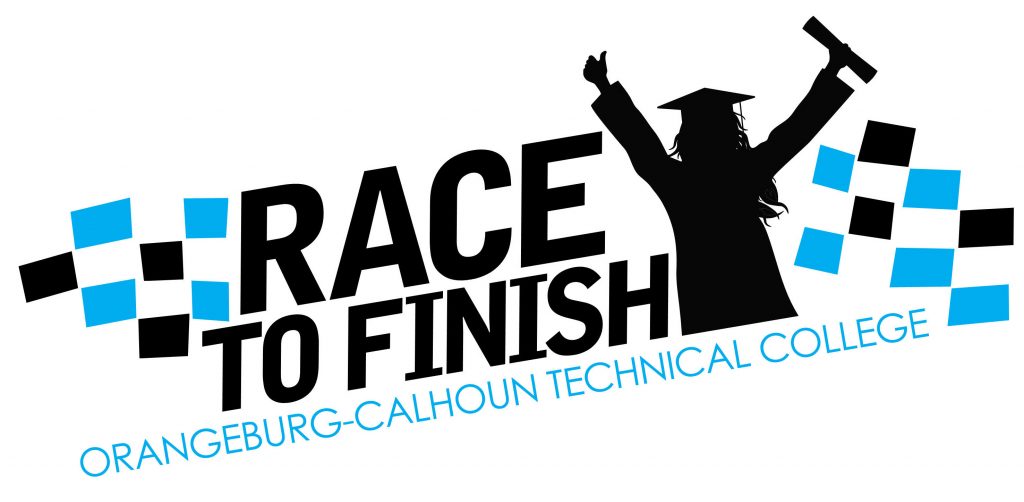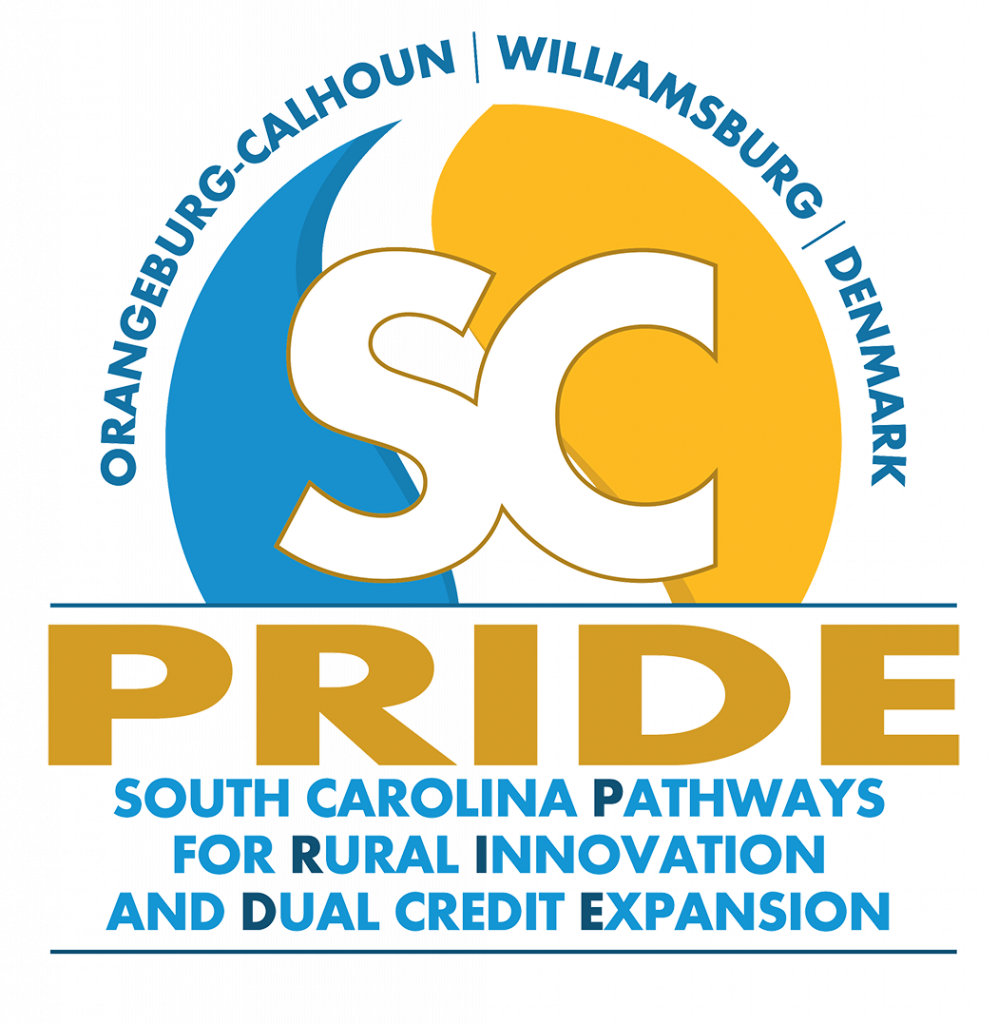Institutional Effectiveness
- Home
- About OCtech
- Grants
Grants
Each year, OCtech receives state and federal grant funds to support projects focused on student success for under-represented groups; program creation and improvement; and workforce expansion.
For more information on OCtech’s current grant projects, please contact:
Leah Jones
Director of Accreditation and Accountability, Grants Coordinator
jonesl@octech.edu
803-535-1280
Current Grants:
Accelerating Access for Professional Pathways
The project’s goal is to:

Increase the number of low- and middle-income Black American students underrepresented among area professionals who are admitted to and who graduate from OCtech’s Teacher Education, Engineering, Nursing, and Health Sciences pathways.
To accomplish this goal, OCtech and its Partners accomplish the following objectives:
- RECRUITING
Increase the diversity of students in Teacher Education, Engineering/Advanced Manufacturing, and Nursing/Health Sciences programs by expanding enrollments for high school students through the creation of specialized Career Academies within the OCtech Early College. - PRE-ENTRY PREPARATION
Increase the number of low- and middle-income Black students prepared to compete for admission into OCtech’s professional Teacher Education, Engineering, Nursing, and Health Sciences pathways by providing college readiness and academic support services to Early College dual credit students and pre-entry adults. - RETENTION
Increase the number of low- and middle-income Black American students who graduate from OCtech’s Teacher Education, Engineering, Nursing, and Health Sciences pathways by establishing online Professional Learning Communities (PLC’s) to provide academic, financial, and social supportive services. - TRANSITION SUPPORT
Increase the number of low- and middle-income Black American students who enter the workforce or transition to a four-year college or university program by providing licensure and credentialing assistance to students, as well as clearly established and published transfer agreements.

Re-engagement and Completion Experience (RACE) to Finish
The RACE to Finish project is designed to promote retention and completion for students who are currently enrolled at OCtech, as well as students who are close to completion (50% or more credits earned) who stopped-out because of challenges faced during the COVID-19 pandemic. A total of $952,262 was awarded for the two-year project.
The stated goal is to: Increase OCtech student completion, graduation, and placement to help students gain a sustainable wage and support families in Orangeburg and Calhoun counties who faced challenges due to the COVID-19 pandemic.
To accomplish this goal, the College has established the following objectives:
- Increase the number of Black students that re-enroll who stopped-out during the COVID-19 pandemic beginning in Spring 2020.
- Increase the completion rate of Black students who stopped-out during the COVID-19 pandemic beginning in Spring 2020 and are re-enrolled.
- Increase the Fall-to-Fall Retention Rate of Black students enrolled in OCtech AAS degree and related certificate programs.
The College’s annual percentage of stopped-out students for academic years 2017-2021 is as follows:
2017-35.27%;
2018-37.63%;
2019-33.24%;
2020-37.46%;
2021-35.94%.
The percentage of degree/certificate-seeking undergraduate students who are Pell grant recipients for the 2020-21 AY is 59.95%.
The RACE to Finish project addresses both the absolute and invitational priorities and will focus on two main improvement strategies. The first is a First-Semester Experience initiative that encompasses college-wide activities, rather than the traditional first-year/first-semester experience course, including expanded college-wide orientation activities; a revamped advising process and a designated advisor for each division to provide appreciative advising and manage new student registration and free up faculty advisors so they can focus on coaching; an online course success tutorial; and community-building activities. The revamped advising process will be the basis for the evaluation study. Project activities related to advising will serve as promising evidence for the study and the What Works Clearinghouse Practice Guide on Effective Advising for Postsecondary Students will provide replicable best-practice recommendations. The second strategy will be to expand and strengthen a campus-wide flexibility initiative that includes creation of two seven-week terms in Fall and Spring semesters with increased hybridization and simulation, as well as the addition of the Weekend Warrior College program to provide working adults with open labs on Fridays and Saturdays.

South Carolina Pathways for Rural Innovation and Dual Credit Expansion
Orangeburg-Calhoun Technical College has been designated as the Lead Institution for a Consortium comprised of three majority minority serving technical colleges located in under-served and under-resourced rural communities of lower South Carolina. The three partnering institutions have a common mission to provide quality education and promote economic development. This mission has been severely interrupted by the challenges of COVID-19. Therefore, the Consortium is seeking funding for a $1,767,896.00 grant through Institutional Resilience and Expanded Postsecondary Opportunity grants program to address these challenges. Denmark Technical College, a Historically Black College or University, and Williamsburg Technical College are the other partners in the Consortium. The three colleges serve a rural six county area. Each county contains Qualified Opportunity Zones. The proposed innovative and crucial project is called South Carolina Pathways for Rural Innovation and Dual Credit Expansion, or SC-PRIDE. All area school districts, the SC Technical College System, and the SC Department of Education are grant partners. SC-PRIDE meets the ABSOLUTE PRIORITY of the solicitation by providing infrastructure and resources for each college to ensure the resilient curriculum delivery models and online support services necessary to train a future workforce during a global pandemic.
The project’s stated goal is: To provide an innovative K-14 program of Dual Credit Pathways using resilient curriculum delivery models and online support services to introduce and transition under-represented and rural students to college and to the workforce during the continuing challenges of COVID-19. The objectives stated below will help this rural region to regain lost momentum caused by COVID-19 disruptions.
Expected Direct Impact:
- 720 Students
- 33 College Instructors
- 70 K-14 Counselors
Additionally, the new tools and software for resilient services may be leveraged to support more than 3600 technical college students annually from this FIPSE grant funding.
Objectives:
- Expand career and technology opportunities through the redesign, development, and implementation of nine state-approved online or hybrid Career and Technology Dual Credit Pathways, consisting of four courses each (36 courses total), that will also facilitate K-12 CTE Completer status for Perkins.
- Increase enrollment in new and existing Dual Credit Pathways through the implementation of new online tools to be used by counselors, parents, and students for career exploration, college applications, financial aid assistance, and registrations in rural and underserved communities across six counties, including Opportunity Zones, in which there is not even a public transportation system.
- Improve course quality and substantive faculty interaction in online and hybrid courses through a comprehensive online faculty professional development program that addresses both development and delivery of the new resilient curriculum delivery models.
- Increase CTE Pathway persistence through faculty and staff use of online communication and monitoring/advising tools to ensure student progress, provide online virtual assistance, and facilitate communication with counselors, students, and parents.
- Provide online tools to assess the effectiveness of the courses and services the colleges are providing.

Metallica Scholars Initiative
Metallica’s Foundation, All Within My Hands, partnered with the American Association of Community Colleges in December 2018 to create a major workforce education initiative called “Metallica Scholars.” MSI provides direct support to community colleges to enhance their career and technical education programs. These programs provide skills and services to students looking to enter a traditional trade or other applied learning program. The Metallica Scholars Initiative began with ten schools in 2019 and currently includes 60 community colleges.
Orangeburg-Calhoun Technical College is proud to be one of 15 nationwide recipients to join Year 7 of the prestigious Metallica Scholars Initiative (MSI). Supported by a generous $75,000 grant aimed at enhancing persistence and retention in its nursing programs, this grant will provide scholarships and support services to eligible students.

SC Nexus for Advanced Resilient Energy (SC NEXUS)
The South Carolina Technical College System is a key partner in the SC Nexus for Advanced Resilient Energy (SC NEXUS) initiative, a federally designated tech hub focused on cyber-secure grid resilience technologies.
Here’s how they are connected:
- Federal Grant Funding: The SC NEXUS was awarded $45 million in federal funding through the U.S. Department of Commerce’s Economic Development Administration (EDA) Tech Hubs program. This funding supports various projects aimed at advancing clean energy technologies and workforce development.
- Workforce Development and Training: One of the key projects funded by this grant is the Education and Workforce Center project, led by the SC Technical College System. This project aims to
1. Increase awareness of career opportunities in South Carolina’s energy-focused industries.
2. Identify and develop the necessary skills for success in these roles.
3. Provide crucial support services, like childcare and transportation, to encourage greater workforce participation. - Targeting Underserved Communities: A significant goal of the SC NEXUS is to ensure that the benefits of its projects, including skills training and workforce development, reach the most distressed counties within the region. They aim to source over 40% of jobs from underserved and rural communities.
As a training partner, OCtech has been awarded $215,000 to offer energy-related programming, including Electrical Lineman and Cybersecurity.
